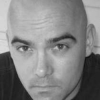Philipp Meyer

Philipp Meyer
Philipp Meyeris an American fiction writer, and is the author of the novels American Rust and The Son, as well as short stories published in McSweeney’s Quarterly, The Iowa Review, and Esquire UK. Meyer is the recipient of a 2010 Guggenheim Fellowship. He grew up in Hampden, a blue-collar Baltimore, Maryland, neighborhood often featured in the films of John Waters. His mother is an artist; his father is an electrician turned college biology instructor. Meyer considers his major literary influences...
NationalityAmerican
ProfessionWriter
CountryUnited States of America
When you hold things back, when you don't commit completely to your ideas and trust completely in your own instincts, you are guaranteeing your own failure - even if you end up having commercial success.
When people grow up in atmospheres of violence or atmospheres of poverty, they don't normally use hi-falutin' language to describe those things. They would describe some brutal event the same way we would describe getting a taxi or missing the bus.
When I dropped out of high school at age 16, I didn't know I was going to become a writer - I just knew I'd never been happy in school, and I had this strong suspicion I'd be happy doing other things.
Texas was mostly short-grass and tall-grass prairie when modern Europeans arrived here. It really was a land of milk and honey. But when they brought all these cattle onto these relatively small bits of land, and the cattle were allowed to graze freely, they essentially destroyed the prairie.
At Cornell University, it was well known that after five years on Wall Street, you could expect to be making half a million a year in salary and bonus; after 10 years, you could expect a million or more. I had 60 grand of university debt, and my parents had no retirement. I needed that money.
I didn't fit the typical profile of a trader. I was an English major working on a novel at night. Most everyone else was a maths or economics major; most everyone else had relatives or family in banking.
Your mind burns a lot of calories. Writing can feel like a physical workout.
I like mechanical things; my first book was a mechanics guide - that was what my parents couldn't pry away from me; that was the blanket.
If you've grown up with guns, the thought that someone might take them away makes your stomach churn. They make you feel safe. If you didn't grow up with guns, if you don't know how to use them, then the thought that someone else has them makes your stomach churn.
I couldn't understand what was important about school. Dropping out was the first adult decision I made. If I ever have kids, I would hate for them to drop out. But I wasn't a rebel. I never cared to be against school. I just wanted to do what I wanted to do.
I was a bit of a delinquent growing up, a very poor student - I nearly failed several grades before dropping out of high school and getting a G.E.D. But I still read a lot. Thrillers and war novels, mostly, along with the occasional literary novel from my parents' bookshelf.
My first published novel, 'American Rust,' took three and a half years of full-time work to write. But I wrote two apprentice novels before that.
I should say that generally I'm a pretty happy person, but as soon as I'm done with a project, I'm usually not happy at all. I feel a little empty and strange. I begin to think about how I can get better, stretch more artistically and intellectually. My biggest worry is getting complacent.
I don't think you can be taught how to make art. You can be coached, but on a fundamental level you have to figure it out for yourself. You have to learn how your own mind works, figure out your own relationship to the art; you essentially have to invent it completely for yourself.